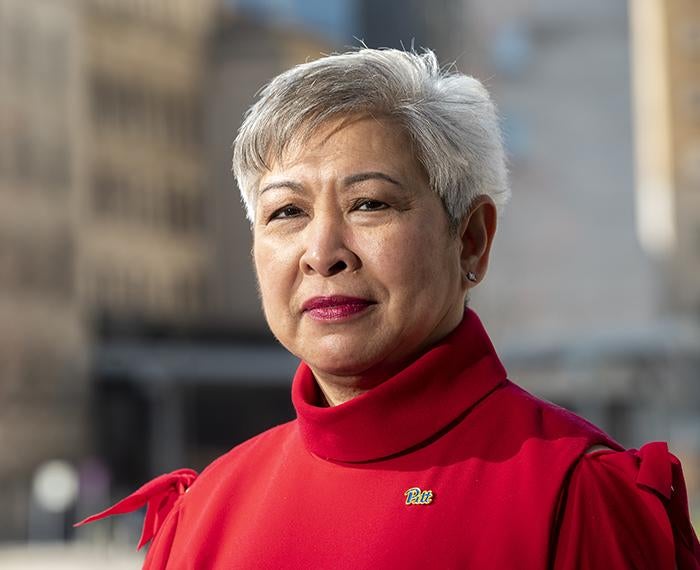
Subscribe to Pittwire Today
Get the most interesting and important stories from the University of Pittsburgh.Translate science into action with the dean of public health

Maureen Lichtveld is on a mission to connect the dots between science and everyday health.
“Our work needs to be translated into meaningful actions in our neighborhoods — whether that be the neighborhoods around us or our global neighborhoods,” said Lichtveld, dean of the University of Pittsburgh’s School of Public Health.
At age 23, Lichtveld became the youngest and first female physician to work directly in the Amazon rainforest — just one of the storied experiences she will share with students this summer, when she teaches a study abroad program in Suriname, where she was born and began her medical career.
Lichtveld’s time treating patients in the South American country inspired her to pursue graduate work in public health.
“When you are a bright young medical student as I was many decades ago, your passion is to cure diseases, but once you begin to practice, you understand that a patient lives in a community and that community exists in society — those are external factors. Without taking a holistic, population-driven approach, that patient comes back every time with the same medical needs,” she explained. “I said to myself, ‘There must be a smarter way to do this.’”
She added, “When working in the rainforest, wherever I turned, the environment had something to do with the medical conditions I was treating, whether it was malnutrition, or air contamination, or soil contamination, or the food that people ate — it all related to public health in general and environmental health, specifically.”
The study abroad opportunity is a chance for students to see these relationships in the real world.
“The goal of the course is for students to learn to recognize the connections between what happens in an environment and how it affects public health,” Lichtveld said.
“My teaching draws on all the elements of my career and opens up opportunities for those that come after me,” said Lichtveld. She joked, “I have gray hair, so we need to be educating the next generation of public health scholars.”
A new way to learn
Students selected for the Public Health Threats in Suriname program will complete a pre-departure module of weekly online classes to prepare for their experience abroad.
The in-country portion of the program begins July 18 and spans two weeks. Students will be immersed in a range of public health topics including climate change, community-based participatory research and issues specific to Suriname, such as the impact of pesticides on the country’s food supply and water quality.
The trip includes a three-day excursion to the Amazon where students will meet with a tiger biologist and visit a small-scale gold mining operation, in addition to taking in the sights and sounds of a pristine swath of rainforest.
Learning by doing is a hallmark of a study abroad experience, and students’ studies include 20 hours of service learning while abroad, a portion of which will be spent caring for sloths affected by deforestation and performing habitat renewal for dolphins.
This summer is Lichtveld’s seventh year of leading a study abroad in Suriname. “Through this experience, students not only create lasting bonds, but pursue careers in public health,” she said. “Graduates from those cohorts now work at the highest levels of government, in the private sector and academia.”
Learn more and apply
The Public Health Threats in Suriname study abroad program is open to all Pitt undergraduate students, and there are no language or other course prerequisites.
To learn more about the program and the application process, attend an information session with Lichtveld at noon on March 10. The deadline to apply is March 15.

